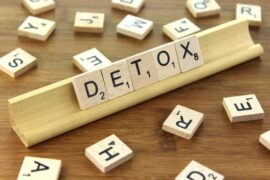We know that eating organic whole foods is good for our health and wellbeing. What some people don’t realize is that eating certain nutrient-rich foods can also help balance their hormones.
Having balanced hormones is necessary for sexual and reproductive health. Our hormones affect our mood, sleep patterns, metabolism, libido, and overall immune system. All these things can also affect our mental health. If you struggle with anxiety, you can try taking this social anxiety test.
Furthermore, medical professionals tell us that when our hormones are out of balance, it can lead to other complications such as diabetes, infertility, osteoporosis, and more.
Along with other methods of balancing hormones, below are some essential foods to eat.
Protein
Getting enough protein is necessary for hormones to do their thing. For one, protein creates amino acids that your body does not naturally produce which helps maintain healthy hair, skin, and nails.
When many people think of protein, they might jump to beef products or protein shakes marketed to gym rats and bodybuilders. What a lot of people don’t realize is that there are so many plant-based proteins that our body can readily absorb. And, it’s important to incorporate these into your diet as well.
In addition, protein is what allows your body to know when you’re full or not or when you need to eat. The hormone, ghrelin, regulates our feeling of hunger. Otherwise, we would keep eating and eating forever, and never feel full.
Some high-protein foods include:
- Eggs
- Oats
- Almonds
- Chicken
- Dairy (yogurt, cheese, milk)
- Fish
- Quinoa
- Lentils

Root Vegetables
Root vegetables, also known as tubers, are complex carbohydrates that your body needs to be well-balanced.
Many women go on diets and restrict all carbohydrates. What many people don’t know is that refined carbs are less essential to the body. On the other hand, complex carbohydrates in root vegetables are necessary for the production of specific hormones.
Root vegetables include:
- Beets
- Turnips
- Carrots
- Radishes
- Sweet potatoes
- Rutabagas
- Celery root
Prebiotics & Probiotics
Balanced hormones are also necessary for gut health. If your gut does not have the right microbiome or amount of “good” bacteria, then you may experience inflammation and digestive issues. According to experts, the gut is the largest endocrine organ in the body and processes over 20 hormones.
Eating foods with natural prebiotics and probiotics is essential for creating this healthy and balanced microbiome.
Some foods you can eat that have probiotics include:
- Fermented foods
- Yogurt
- Sauerkraut
- Kimchi
- Fermented pickles
Foods that contain prebiotics include:
- Asparagus
- Bananas
- Leeks
- Onions
- Garlic
- Shiitake mushrooms
- Chicory root
- Dandelion (root, greens, tea)
- Sunchokes

Healthy Fats
Finally, healthy fats are absolutely necessary to keep estrogen levels balanced in the body.
Foods that contain high levels of Omega 3 are not so readily available, and therefore your body needs more of it for essential hormone balancing. Good fats are needed for this process and affect mood, brain function, bone health, immune system, and more!
- Avocados
- Extra virgin olive oil
- Coconut oil
- Salmon, anchovies, and other fatty fish
- Evening primrose (herb)
- Chia seeds
- Flax seeds
- Hemp seeds
- Nuts
- Cheeses
Get Balanced
So, now that you know what kinds of foods are necessary to balance your body’s hormones, you can try to incorporate these foods more into your diet.
Next time you’re at the grocery store, consider stocking up on some of these items and perhaps make meal plans around them. If you need help figuring out how to incorporate some of these foods, you can check out tons of recipes online or speak to a nutrition specialist!
There are supplements you can take that also incorporate these things, but getting them in your diet is always recommended for maximum absorption. Now, go on and get balanced.
Author Bio
 Marie Miguel has been a writing and research expert for nearly a decade, covering a variety of health- related topics. Currently, she is contributing to the expansion and growth of a free online mental health resource with Mind-Diagnostics.org. With an interest and dedication to addressing stigmas associated with mental health, she continues to specifically target subjects related to anxiety and depression.
Marie Miguel has been a writing and research expert for nearly a decade, covering a variety of health- related topics. Currently, she is contributing to the expansion and growth of a free online mental health resource with Mind-Diagnostics.org. With an interest and dedication to addressing stigmas associated with mental health, she continues to specifically target subjects related to anxiety and depression.


































